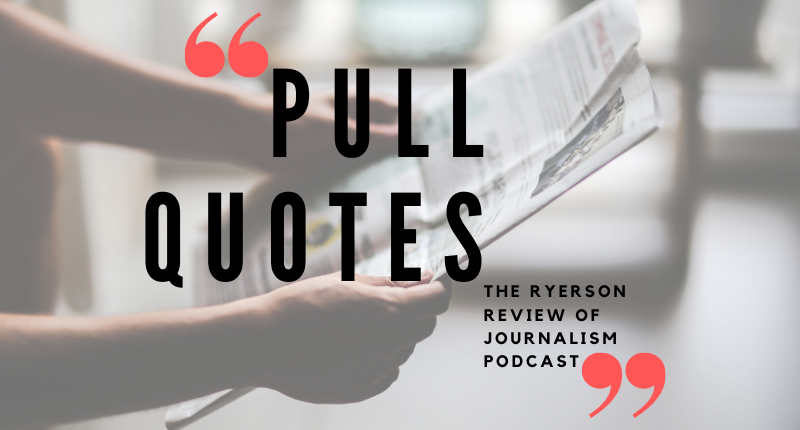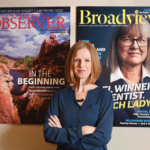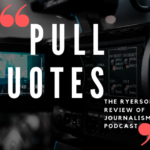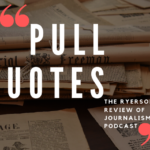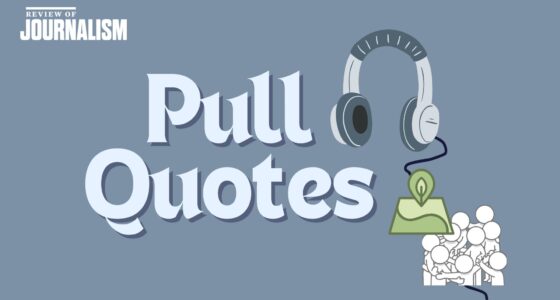Walking the Fine Line of Objectivity in the Age of Twitter – A Conversation With Desmond Cole and Vicky Mochama: Pull Quotes Season 3, Episode 4
Listen to season three, episode four above or subscribe on iTunes
In the latest installment of the Ryerson Review of Journalism’s Unpublished conversation series, Pull Quotes host Ashley Fraser sat down with journalist and activist Desmond Cole. They explored the nature of journalism and activism and attempted to unpack “objectivity.”
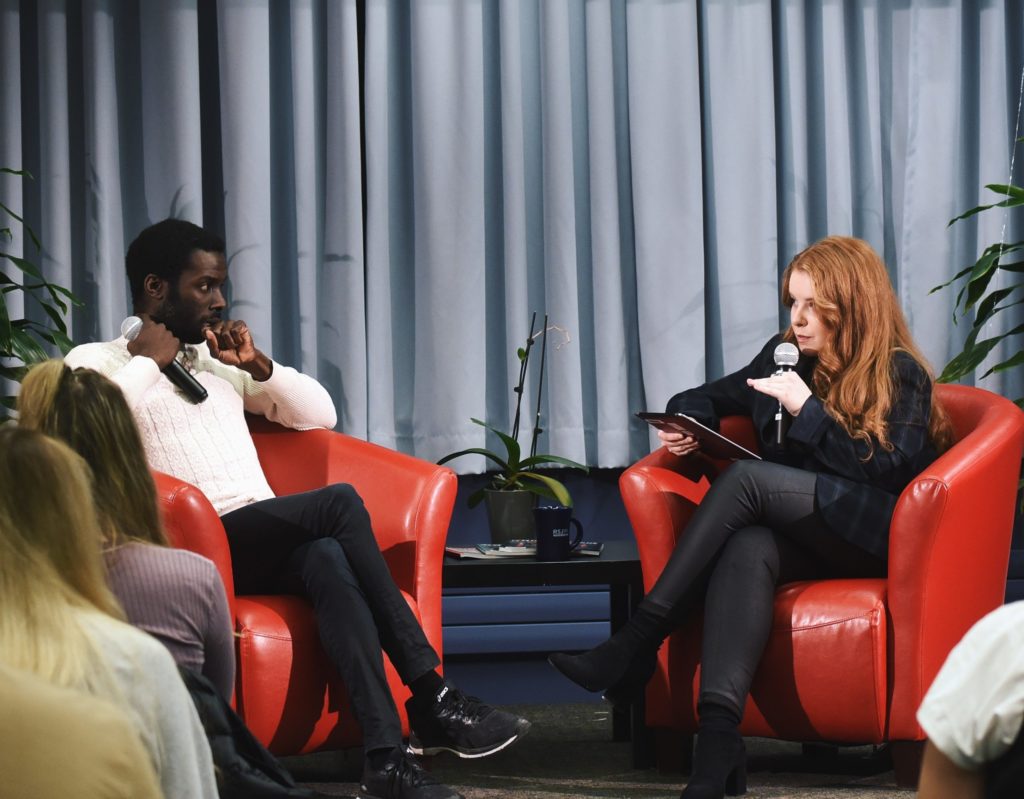
Before this conversation, Pull Quotes spoke with Cole and Vicky Mochama, journalist and co-founder of Vocal Fry studios, to discuss Twitter’s role within journalism. Both Mochama and Cole are freelancers that have built substantial Twitter followings for themselves: Cole has nearly 85,000 Twitter followers, and Mochama has close to 16,300.
But with great Twitter following comes great responsibility, and journalists have to navigate sharing their personal lives while using the site to find sources, story ideas and even jobs.
“I maintain that Twitter is not my job, but it helps. It facilitates my job,” says Mochama on the podcast. However, she also recognizes her Twitter account is a “distilled” version of her personality.
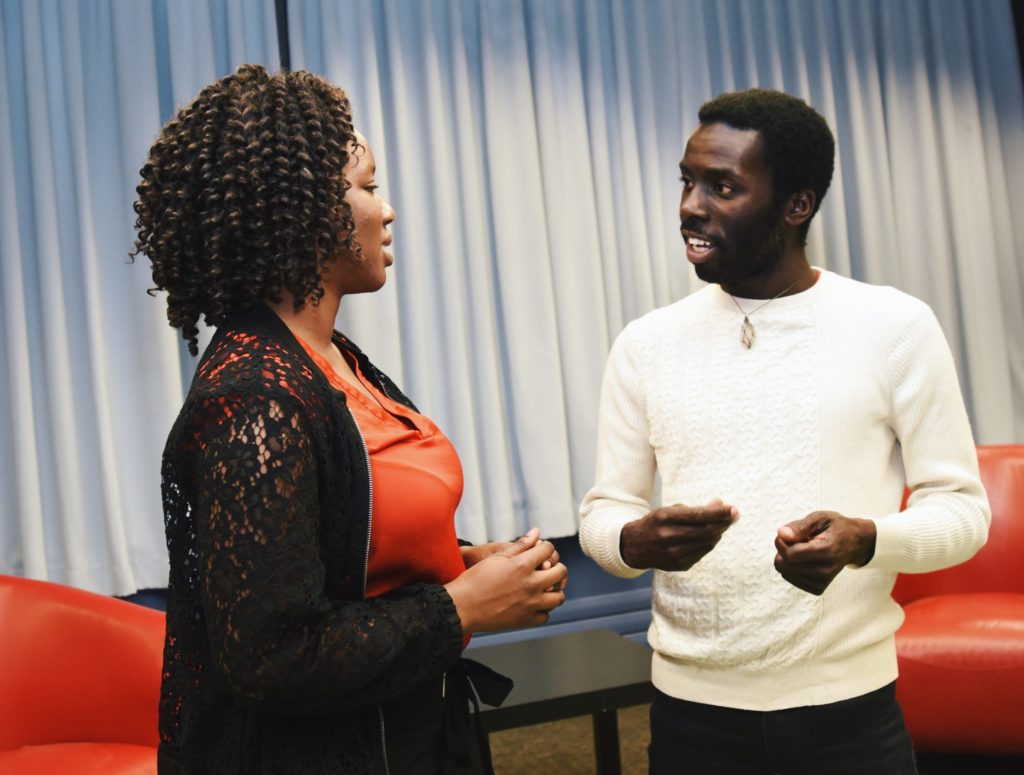
Folker Hanusch, a professor of journalism from the University of Vienna, wrote in a 2017 paper that social media allows journalists to “perform on-stage personae but simultaneously allow their audiences a glimpse into their backstage, or personal identities.”
Although Twitter can help journalists professionally, it can be a place for them to also display a more personal side of themselves. Journalists have been reprimanded by their employers for doing just that.
After Don Cherry’s remarks about immigrants not wearing poppies during a Coach’s Corner broadcast on November 10, Ahmar Khan, a reporter for CBC Manitoba, tweeted, “It [is] long due time for Don Cherry’s Coach’s Corner to be cancelled. His xenophobic comments being aired weekly are deplorable.”
On November 14, Canadaland reported CBC forced Khan to delete his tweet. CBC claimed the tweet was in violation of their code of conduct through “‘the expression of personal opinions on controversial subjects, including politics.’”
Cole discusses Khan’s tweet in conversation with Fraser and producer Tanja Saric on the Pull Quotes podcast, and talks about the dissonance that can emerge when freelancers with distinct Twitter personalities end up trying to work within legacy media’s social media codes.
“I definitely know that personally, my Twitter feed is probably a great obstacle to my being successfully employed within mainstream media,” says Cole.
It’s not uncommon for journalism outlets to have social media policies for their reporters. Manisha Krishnan, senior editor for Vice Canada, says she has to look up Vice’s social media policy. “That should tell you something, the fact that I don’t actually know offhand,” says Krishnan.
According to Krishnan, Vice Canada’s code makes reference to reporters exercising “best judgment” and avoiding “any association with political groups.”
Krishnan says the value of objectivity was a large part of her journalism education at Langara College in Vancouver. This objectivity continued when she worked at legacy media publications like the Toronto Star and the Calgary Herald, where she felt she “toed the line” when it came to Twitter. “I didn’t really take risks with my social media presence at all,” says Krishnan.
That changed when she started working for Vice Canada, a publication known for its looser tone and more leniency with reporters’ opinions. “I think I just had to lose that fear that I had about maintaining the sense of always having this rigid sense of objectivity,” says Krishnan.
But she also acknowledges social media can be a “double-edged sword” when it comes to journalists’ careers. A journalist’s Twitter brand (although she hates the term, brand) can help them get more opportunities, whether it be a job or a source, she says. At the same time, being seen as “too opinionated” can hurt a journalists’ chance at employment with some outlets.
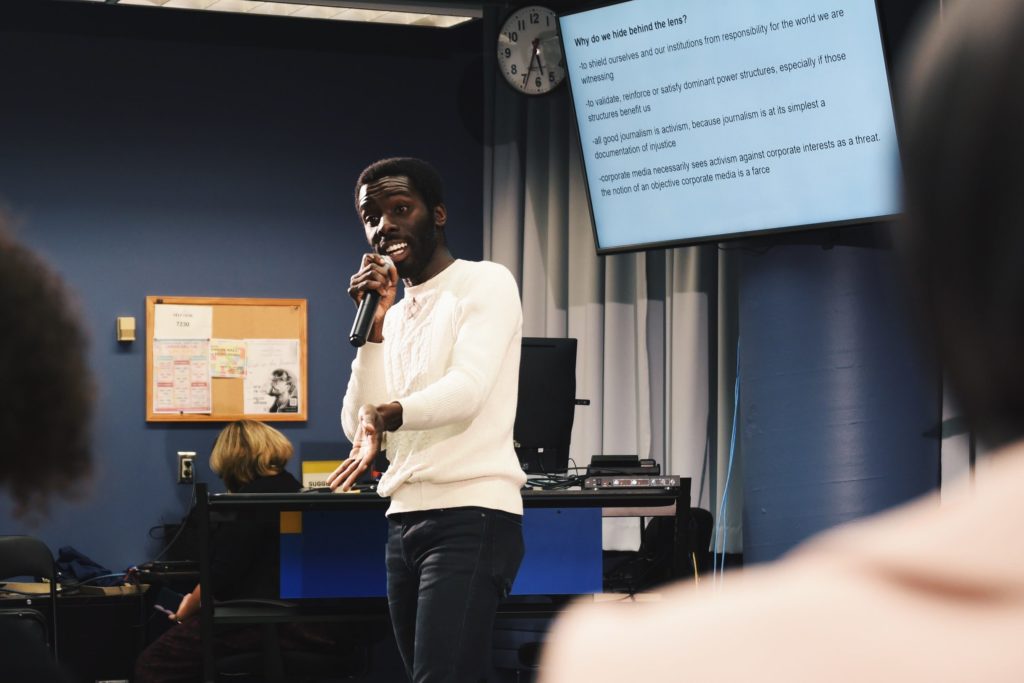
In his 2017 report, researcher Folker Hanusch acknowledged the value of social media branding for journalists, writing social media “offers an opportunity to differentiate themselves from others and to become an online celebrity which may in turn raise the level of brand recognition for their employer.”
For Cole and Mochama, this “brand recognition” is the key to taking their ideas from the Twittersphere, and launching them into publication or broadcast.
“You can never compare what exposure you’re getting in legacy media to Twitter,” says Cole in this week’s podcast. Mochama says she often wonders, “Is there a way to get ideas or viewpoints or stories into the traditional and mainstream media?”
“I think I am still trying to ensure that we’re breaking into those spaces, because frankly, that’s where the larger portion of the cultural and political conversation is still happening,” says Mochama.
By Sean Young
Episode four of Pull Quotes was edited by Tanja Saric and produced by Ashley Fraser, and guest produced by Sean Young. Technical production help from Angela Glover and Lindsay Hanna. Pull Quotes’ executive producer is Sonya Fatah.
Podcast: Play in new window | Download
Subscribe: Apple Podcasts | Spotify | RSS

